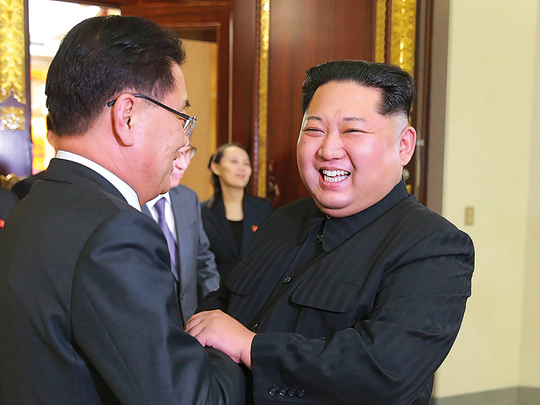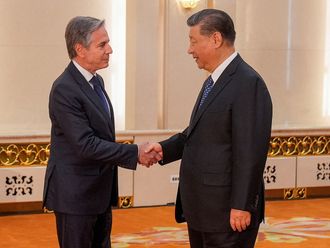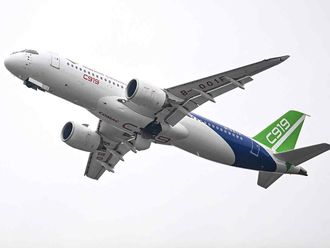
Seoul, South Korea: South Korean presidential envoys have met with North Korean leader Kim Jong Un in Pyongyang in the highest-level talks between the rivals in years.
Leaders of the two Koreas have met only twice during their 70 years of division along the world’s most heavily armed border.
A look at some of the significant meetings held between the Koreas since the 1950-53 Korean War:
OPENING TALKS IN 1972
Nineteen years after their war ended in an armistice, the Koreas agreed to open political dialogue in 1972. The countries started off by issuing a joint communique on July 4 in which they agreed to establish a coordinating committee for future talks and install a direct phone line between them.
The Koreas also agreed that unification should be achieved peacefully and that the two sides should cease mutual slander and armed provocations and undertake measures to prevent military conflict.
After several meetings in Seoul and Pyongyang, North Korea abandoned the talks months later, demanding that South Korea first repeal its anti-communist laws.
PLANNING FAMILY REUNIONS IN 1985
In August 1985, the Koreas reached an agreement to organise the first temporary reunions between ageing war-separated families.
The first meetings took place in Seoul and Pyongyang in September, but the countries weren’t able to arrange another round until 2000 because of continuing political animosity.
During the first reunions, North Korean state media accused South Korean visitors of indulging in anti-communist propaganda during their meetings with North Korean relatives.
The Koreas have so far held 20 rounds of family reunions.
SUMMIT OF 2000
The first inter-Korean summit took place between former North Korean leader Kim Jong Il, the late father of current leader Kim Jong Un, and former liberal South Korean President Kim Dae-jung.
The three-day meetings in June, which began with a broadly smiling Kim Jong Il tightly grabbing the hands of Kim Dae-jung at a Pyongyang airport, led to a landmark agreement between the Koreas over now-stalled joint economic projects. The countries also agreed to resume family reunions.
Kim Dae-jung won the Nobel Peace Prize later in 2000 for his rapprochement policies with the North.
SUMMIT OF 2007
The Koreas held their second summit in October 2007 between Kim Jong Il and Roh Moo-hyun, Kim Dae-jung’s liberal successor and political mentor of current South Korean President Moon Jae-in.
Roh went to Pyongyang after crossing the Demilitarised Zone in a highly symbolic moment that grabbed international headlines.
Kim and Roh agreed to pursue a peace treaty to formally end the Korean War and reached a set of cooperation projects. But most of the accords were shelved after Roh’s single five-year term ended months later and he was replaced by a conservative who took a harder line over the North’s nuclear ambitions.
PULLING BACK FROM THE BRINK IN 2015
Using high-level marathon talks over three days, the Koreas in August 2015 reached an accord and dramatically pulled back from a tense standoff that involved an exchange of artillery fire and vows of imminent war.
Under the accord, North Korea issued a vague expression of regret over landmine blasts at the inter-Korean border that maimed two South Korean soldiers.
North Korea previously denied the South’s accusation that the mines were planted by North Korean soldiers. South Korea agreed to stop its anti-Pyongyang propaganda broadcasts at the border.
OLYMPIC OUTREACH IN 2018
Becoming the first member of North Korea’s ruling family to visit South Korea since the end of the Korean War, Kim Yo Jong, the sister of leader Kim Jong Un, flew to the South on February 9 on her brother’s private jet and took her place among world leaders at the Olympic opening ceremony in Pyeongchang, sitting just a few feet away from US Vice-President Mike Pence.
Moon invited her and other senior North Korean officials for lunch at Seoul’s presidential palace, where Kim delivered her brother’s intentions to hold a summit with Moon in Pyongyang “soon.”
North Korea sent another senior official, Kim Yong Chol, to the Olympics closing ceremony. He told Moon that the North had “ample intentions” to open dialogue with the United States.












